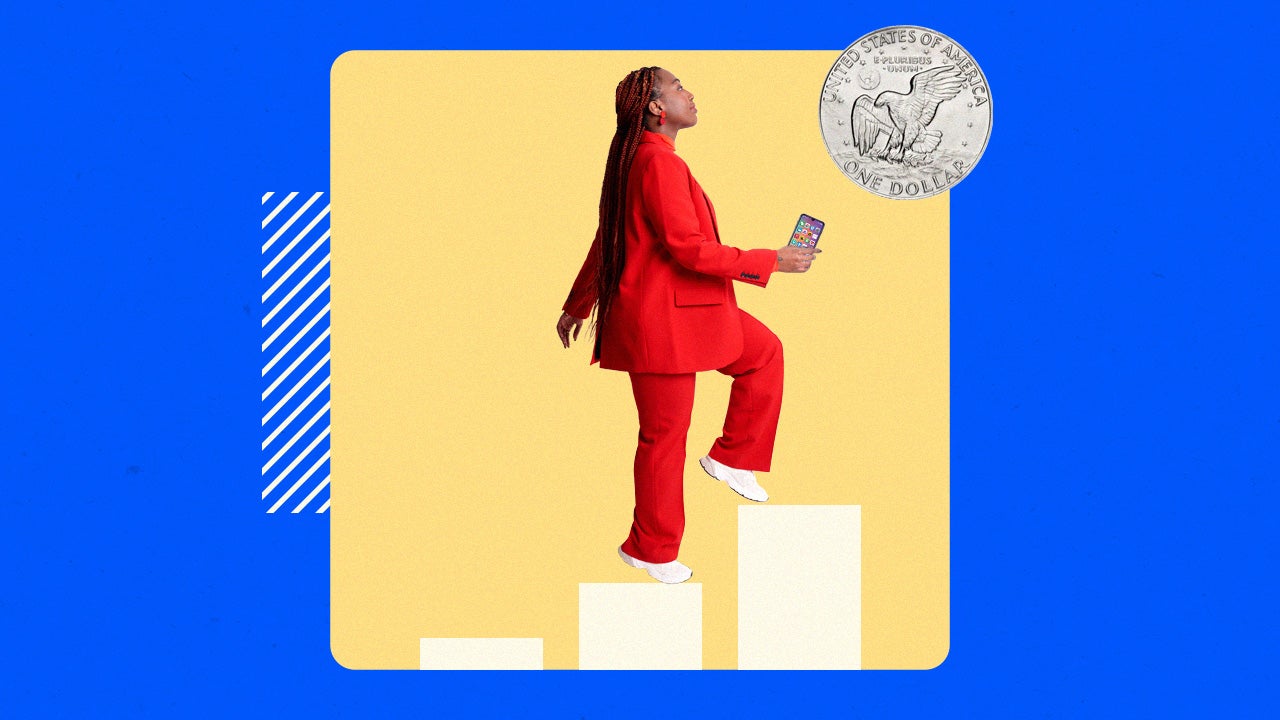Guide to safely sending money on Cash App

Key takeaways
- Cash App makes it easy to send money to family members or friends, and a variety of security features help keep your account secure.
- Since Cash App transfers typically cannot be reversed, you should only transfer funds when you know the reason and recipient are legitimate.
- Understanding the most common Cash App scams, which aim to get you to send money or reveal sensitive personal information, can help you avoid them.
Cash App is a peer-to-peer money transfer service that makes it easy to send cash to family and friends. You can also use Cash App to pay your share of the rent, reimburse friends and family members, make donations and even tip your hairstylist. The app also makes it easy to split bills for convenience and fairness. If you cover a friend’s meal at a group brunch, for example, you could send your friend a payment request through Cash App to make sure they cover their share of the cost.
But, Cash App offers additional features outside of money transfers as well. These include the ability to invest your Cash App account balance and the option to receive direct deposits in your Cash App account. Cash App even lets you convert dollars into Bitcoin, which you can do with a few simple taps from your home screen.
There’s also a new Cash App card that functions like a debit card, works wherever Visa cards are accepted and lets you make payments from your Cash App balance. Various security features also ensure secure money transfers and other actions in the app. Here’s how to send money safely through the app and which money transfer scams you’ll want to avoid.
How Cash App works
Cash App has a simple interface that makes it easy to send or receive money. Tap the dollar amount you’d like to send or receive, tap “Request” or “Pay” and you’ll be seconds away from sending a friend money or requesting that they send you money.
The money you send and receive through Cash App can come from a linked debit card, credit card or bank account — but you can also add money to your Cash App account and draw from that balance when you send funds. You can even get your paycheck direct-deposited into your Cash App account if you want to maximize your Cash App balance.
It’s important to note that fees can apply depending on how you send funds through the app. Money transfers with Cash App are free if you use your Cash App balance or a linked debit card to make a transfer, but you can also pay a 3 percent fee to send cash from a credit card linked to your account. Cashing out your account is free if you can wait 1 to 3 business days to get your funds. If you need cash instantly, a deposit fee of 0.5 percent to 1.75 percent can apply.
How to send money safely on Cash App
Cash App uses enhanced encryption and fraud detection technology to secure your account information and funds. However, you can take steps to increase your account’s security and ensure money transfers go to the right person.
To send money safely through Cash App, you can take the following steps:
- Create a Cash App account. First, download Cash App through the App Store or Google Play. Then, open the app and create an account by entering your phone number or email address and adding the one-time login code Cash App provides. You must be at least 18 to open a Cash App account.
- Turn on notifications for your account. This move can help you stay informed of new transactions on your account, including transactions you didn’t make yourself. Contact Cash App immediately if you get a notification for a transaction on your account you don’t recognize.
- Set up multifactor authentication. Cash App allows several multifactor authentication options to keep your account more secure, including PIN security, Face ID or Touch ID.
- Never share your login or password. Keep your account information secure, and make sure you set up a password nobody can guess. Consider using a password manager to keep your account details private and get help with complex password creation.
- Confirm recipient information before you send funds. Make sure to confirm and reconfirm contact information for the recipient of your funds before you send it. This step is crucial since Cash App cannot cancel or refund a payment after the fact, and all you can do at that point is ask the recipient to refund your money.
Tips for avoiding common Cash App scams
Money transfer apps like Cash App, Venmo and Zelle are common tools for criminals and scammers for myriad reasons, including the fact that money transfers are typically irreversible. If a criminal gets you to send them money through the app, there are few ways for you to get the funds back.
Keep the following Cash App scams in mind as you use the app for safe money transfers.
Cash-flipping scams
Criminals who perpetrate cash-flipping scams will promise to “flip” your money for a profit and send some of the proceeds back to you. If you send them $200 through Cash App, for example, they might promise to turn it into $400, $600 or more.
Of course, these claims are never real, and you should avoid these offers completely.
Payment claiming scams
This type of scam typically promises you a payment in exchange for upfront fees. In the end, however, the scammer gets your money, and you get nothing in return.
According to Cash App, the app itself will never request funds from a customer for any reason. There’s also no such thing as claiming a payment by sending money to Cash App or to anyone claiming to represent the app.
Apartment and home rental deposit scams
In this scam, criminals make fake rental advertisements for apartments and rental homes. The properties themselves may actually exist, but the rental availability itself is fake.
They typically ask you to put down a deposit on the property before you have a chance to tour it. Of course, they never intend to rent you a place, and you never see the deposit again.
Pet deposit scams
Scammers may also post about puppies or other pets that will soon be for sale, along with fake pictures of the new litter. They’ll ask for an upfront deposit for your new pet, only to keep the funds without explanation.
As always, you should never send money to someone you don’t know through the app.
Fake giveaways
Scammers also take to social media to offer up free Cash App giveaways. They may also use hashtags like #cashappgiveaway or #cashappfriday, which Cash App says are not affiliated with the app at all.
These scams are always fake, although the goal can vary. For example, the criminals may ask you to pay a fee to collect your “prize,” or they may try to get your account login credentials.
Accidental payment scams
Watch out for accidental payment scams, which usually start with someone you don’t know randomly sending you money through the app. After that, they will ask you to send the payment back, in which case the money you send will come from your account balance. Once you send the money, they will dispute the initial “accidental payment” with their bank or credit card to get their funds back, too.
Cash App says you can avoid this scam by never sending money to someone you don’t know, even if they say the money was sent by accident. You can also refund the payment to the sender instead of creating a new payment to them. Here’s how to refund a payment without risking your funds.
Frequently asked questions about Cash App
The bottom line
Knowing how to send money on Cash App is only half of the battle. You should also know how to use the enhanced security features your account offers and how to avoid the most common scams that are out there today.
For the most part, you can avoid being a victim of Cash App scams by never sending money to someone you don’t know. Also, verify and double-check the information of someone you want to transfer funds to before moving forward.
You may also like

What categories do cash apps pay you for?


Apps to use for international money transfers



